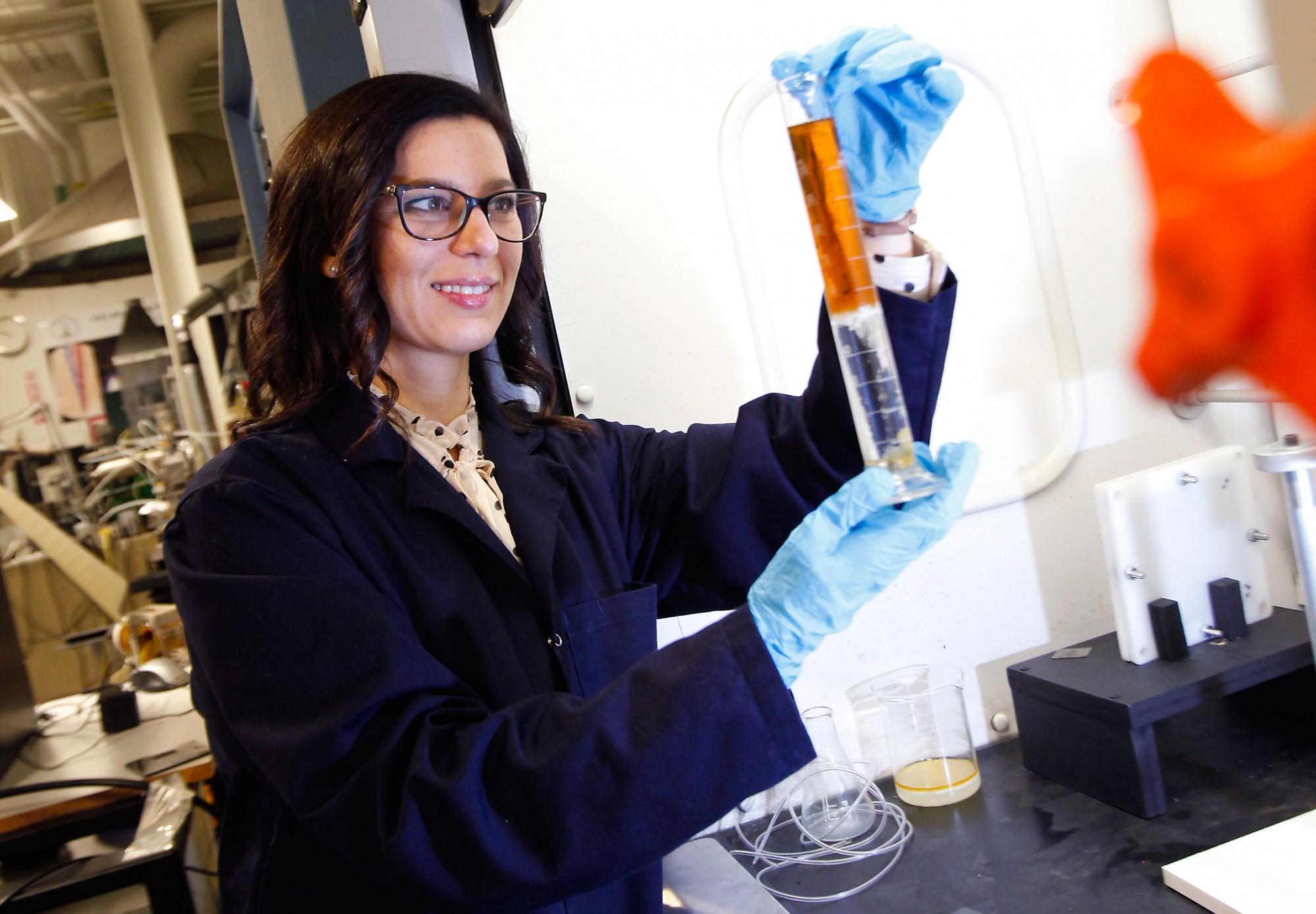 Dr. Ofelia Jianu’s Intelligent Fuels and Energy Laboratory (i-FuELs) has received funding to research hydrogen as an alternative to fossil fuels in automobiles.
Dr. Ofelia Jianu’s Intelligent Fuels and Energy Laboratory (i-FuELs) has received funding to research hydrogen as an alternative to fossil fuels in automobiles.
From cost-effective, electric vehicles with superior torque density and performance to energy-absorbing devices that can save lives in automotive crashes or bomb explosions, more than $3.2 million in federal funding will advance University of Windsor research at the forefront of Canadian engineering innovation.
Seventeen researchers in the university’s Faculty of Engineering received funding through the Natural Science and Engineering Research Council of Canada’s five-year term Discovery Grants and the Research Tools and Instruments Grant program.
Dr. Bill Altenhof, who specializes in mechanical and materials engineering, is developing high performing adaptive structural energy absorbing devices that can adjust force and displacement response as needed. These responsive materials have the potential to mitigate serious injuries or death as a result of falls, automotive crashes, pedestrian impacts, blasts or bomb explosions.
“Active adaptive energy absorbing systems will adjust or transform vehicle structures to the conditions of a crash to ensure an appropriate level of forces is transmitted to occupants resulting in a lower possibility of injury,” says Dr. Altenhof. “Current structural systems are passive in nature, meaning one design is for all crash situations.”
Altenhof says these advanced active adaptive systems can be thought of as “smart airbags” for vehicle structures that constantly adjust for different pre-crash conditions.
While Dr. Narayan Kar’s Centre for Hybrid Automotive Research and Green Energy continues to lead advancements in electric vehicle powertrain technology, Dr. Ofelia Jianu is examining an alternate way to deliver vehicles with zero emissions — hydrogen fuel.
Dr. Jianu’s research team is focusing on the use of the thermochemical copper-chlorine cycle for hydrogen production.
“This is an advantageous technology that could produce hydrogen at a large scale and alleviate climate change concerns,” she says. “Improving the efficiency of this process will help position Canada as a global leader in low-carbon smart mobility technologies.”
University-wide, 38 faculty members have been awarded more than $6.5 million in federal funding to advance research and innovation in science and engineering. UWindsor exceeded the national success rate for the 2020 Discovery Grant competition with more than 63 per cent of all applications receiving funding.
Faculty of Engineering Discovery Grant Recipients
Abdul-Kader, Walid — Modeling and Optimization of Sustainable Reverse Logistics Enterprise
Ahmadi, Arash — Developing Bio-inspired Neuro-Engine for Intelligent Pervasive Computing
Ahmadi, Majid — Memristor-based Architectures for Neuromorphic Computing
Altenhof, William — Lightweight active and passive energy dissipation devices for enhanced and adaptable crashworthiness performance
Ghrib, Faouzi — Condition Monitoring of Concrete Structures
Iyer, Lakshmi Varaha — Next Generation Axially Integrated Electric Motor Drives with Alternative Materials for Electrified Vehicle Propulsion
Jianu, Ofelia — Investigation of Transport Phenomena for Performance Improvement of Energy Systems
Kar, Narayan — Next Electric Drives for Future Electric Cars
Kim, Eunsik — Beyond the Ergonomics Program: Applying Gamification for the Prevention of Musculoskeletal Disorders.
Lalman, Jerald — Producing methane from lignin degradation byproducts
Nasif, Ghassan (Gus) — Coherent Structures in Complex Sheared Flows
Rahimi, Afshin — Online Fault Diagnosis, Prognosis, and Health Monitoring of Small Satellites
Xu, Iris Xiaohong — Characterizing source impacts and trend of air pollution
Faculty of Engineering Research Tools and Instruments Grant Recipients
Balachandar Ramaswami (Primary Investigator), Bolisetti, Tirupati (Co-Investigator) — Replacement for the failed Laser Doppler Velocimeter (LDV) system
Emadi Tahereh, Arezoo (Co-Investigator) — Multi-user in vivo animal imaging system
Van Engelen, Niel (Primary Investigator) — Monitoring System for Vibration Control in Wood Structures
